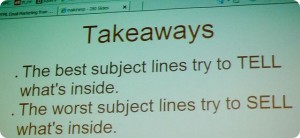At the core of every successful relationship is the foundational need to trust one another. This applies in business, too, in the relationship between leader and team members. While trust may not be fashionable in every circle these days, no leader can succeed without their team’s trust and support. In the same way, no business prospers without trust between the brand and its clients. The capacity to build trust is one of the fundamental cornerstones of successful leadership.
WHY TRUST MATTERS
Businesses built on trust outperform those that do not. When Trust Across America’s Corporate Integrity Monitor measured trust, they found companies that were ethical and trustworthy outperformed companies that weren’t by about 17%.
The most important quote I’ve ever heard on trust was this one: “Trust takes years to build, seconds to break, and forever to repair.” I find this particularly meaningful today as the nation struggles with its relationship with the leaders who have chosen to mislead and misinform the public on topics related to the international pandemic. Their response corresponds to the erosion of trust in our government, its services, and mandates.
Unfortunately, the government can do little to contain the pandemic’s spread this winter until the leaders can again earn the nation’s trust. This is an extreme example of what happens when a powerful organization loses the trust of its clientele.
The need for trust between workers in a business, whether between two clients, between a leader and her team, work best when all parties feel they can rely on the best behavior of everyone involved. When workers believe their leaders have their back, and when they know the leader trusts them in return, they will make a consistent effort. The trust of one’s clients matters as much. Losing the faith and trust of a client can end in a reversal of fortune almost overnight. Trust, however, is not easily won in most relationships. In business, where the stakes are high, it is even harder to come by. Established companies are not immune to lapses in trust.
In January, users of a program called FaceTime noticed a bug that allowed people to eavesdrop on the person they were calling before they picked up the phone. The bug affected the iPhone, iPad, and Mac users whose devices supported FaceTime. Apple is worth more than two trillion dollars, and missteps at their stage in the game could be worth billions. Apple corrected the bug and apologized profusely. Being a company with billions in assets, computers, and phones worldwide, Apple is reasonably confident no lasting damage to its brand has occurred. Still, the company has been in business for over 30 years and has developed quite a bit of wiggle room with its enthusiastic, even cult-like following. As a small business owner, you won’t have nearly as much grace, so you’ll need to establish trust and do everything you can to maintain it with your clients.
The power of trust affects the decision-maker, the ethics she exercises, and, often, the outcome of company operations. For smaller companies, this may take the form of codes of conduct, human resource policies, and operational policies that promote trust-enhancing ethical behavior.
TRUST EQUITY
The term “trust equity” promotes two perspectives on the concept of trust. The first is to establish the idea with your team, the first definition of equity: “the quality of being fair and impartial.”
Being fair and impartial goes a long way in maintaining a high-quality leadership team, as favoritism—or even the impression of favoritism— has the potential to undermine morale, breed resentment, and cause a reduction in work quality.
The second definition of equity is: “the value of the shares issued by a company.” I think of “trust equity” as part of a company’s investment when they trust me to help develop their leadership potential, train their leaders, or organize the company for smoother performance. Trusting me is an investment I return by trusting them. If mutual trust is maintained and successful results are the outcome, trust reinforces itself, ensuring speedier and more effective operations over time. Trust equity can be a powerful tool for organizations creating synergistic relationships between firms.
To be effective, a leader needs their team to trust them. Build that trust by establishing positive relationships: support team members, resolve conflict, lead by example, mentor or coach, give honest feedback, check-in with the team. If they believe you understand their work, they are more likely to trust your judgment of their work. It’s essential to follow through: Keep your word and be consistent. When people see your consistency, they are more likely to trust your work and your commitment in the future.
There are no shortcuts to trust. It takes time but is well worth the effort. To have the trust of one’s team is one of the most powerful of your leadership skills.
Business & Finance Articles on Business 2 Community
(13)
Report Post






